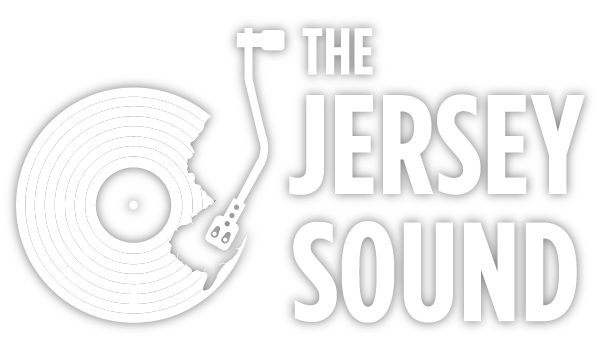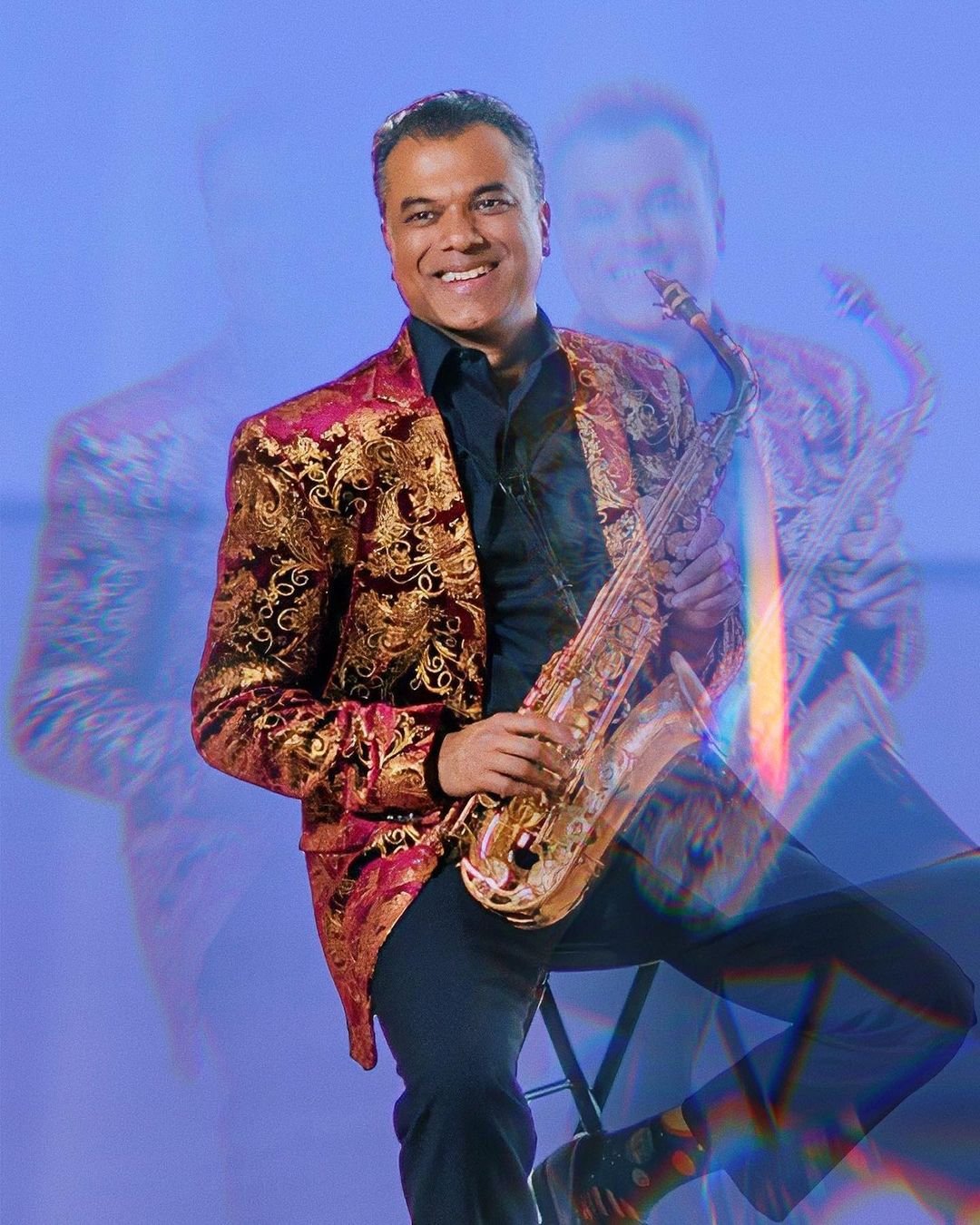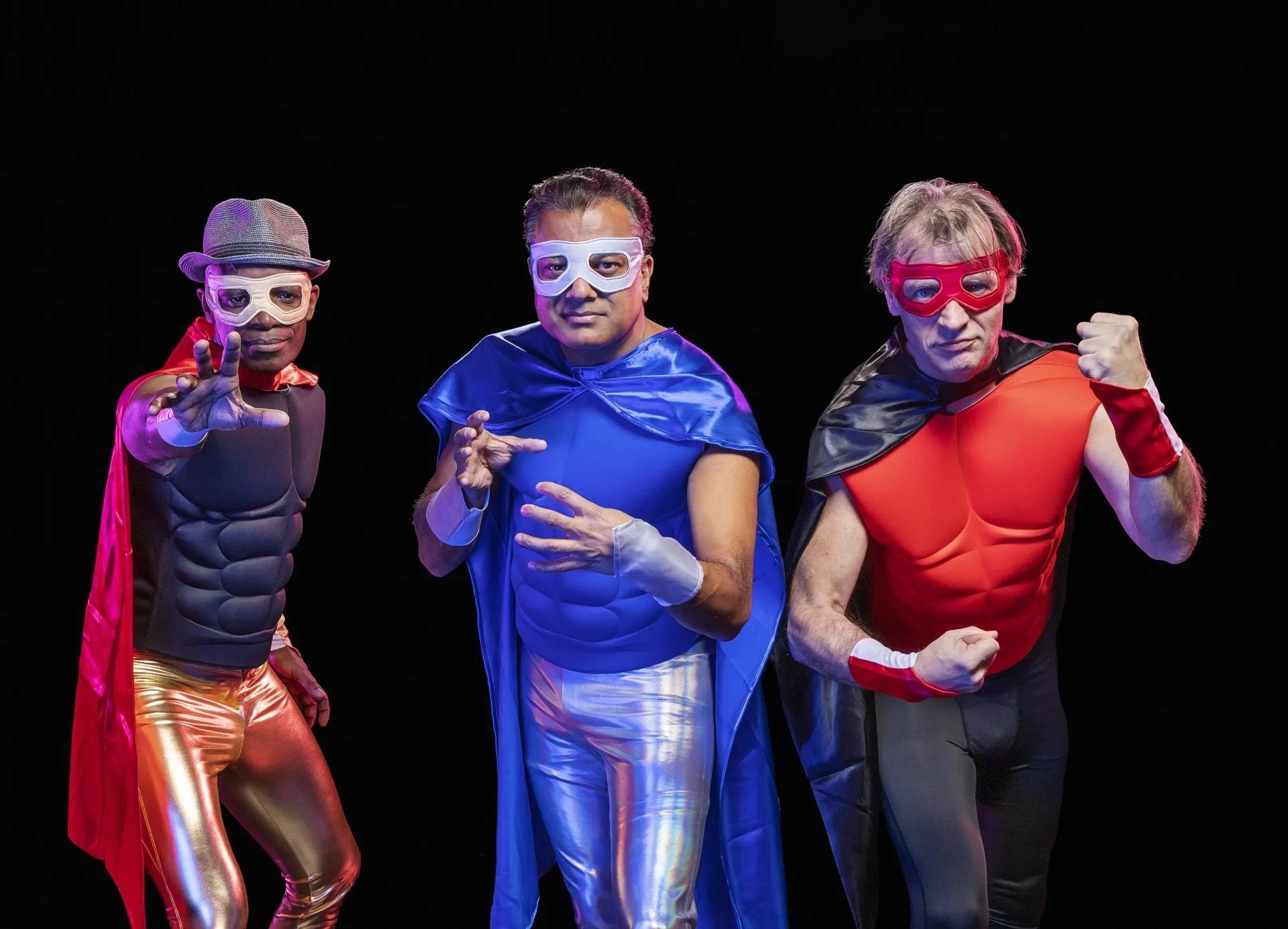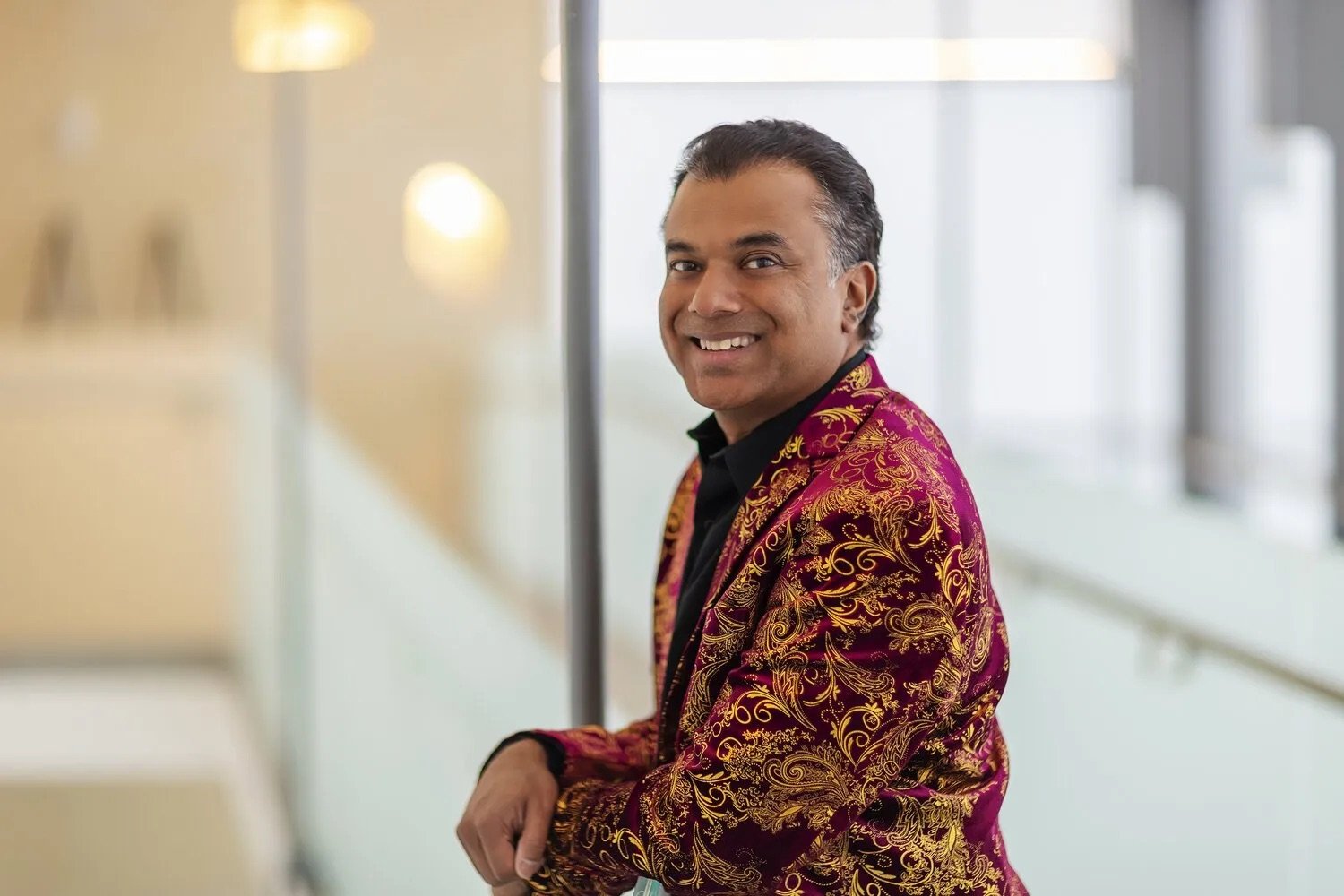A Man Called Ru (Rudresh Mahanthappa)
UP CLOSE
⭐️
Rudresh Mahanthappa
⭐️
UP CLOSE ⭐️ Rudresh Mahanthappa ⭐️
Rudresh Mahanthappa, 51, is the greatest living American alto saxophone player. Period.
His 16 albums in 28 years is testament to that fact. Born in Italy to Indian emigres, raised in Colorado, he moved to Chicago and New York before settling in Montclair. For the last eight years, he’s been Director of Jazz at Princeton University. His melding of the folkloric Indian strains of esoteric worldbeat with post-bop makes him one of the more intriguing voices in all of music. Ask him if there is, indeed, a “Jersey Sound,” he’ll talk at length about what he calls a “Jersey Energy” that musically sets this state apart.
Graciously phoning us during rehearsals for his upcoming tour with his Hero Trio, he was obviously excited about finally hitting the road to play selections from this band’s self-titled 2020 debut and its new digital-only Animal Crossing EP.
Mike Greenblatt: Do your students know that they’re being taught by the greatest living American alto saxophonist?
Rudresh Mahanthappa: That’s very flattering. Maybe so. What’s really funny—and I was probably like this too—but it’s kind of human nature to only be excited about what is not directly in front of you. They certainly have access to me. I’m right there. But they’re always talking about the next guy or whoever has a ton of stuff on youtube and Instagram. I guess the landscape is always a little bit different in school.
“We’re at a place now as a multi-culturally aware country that’s moved beyond the cut-and-paste fusion concept of the ‘60s and ‘70s. We’re actually creating things that are beyond category and that’s because the people making that music—children of immigrants—actually possess that hybridity. ”
MG: Ever since Bird Calls in 2015, you've been The Man when it comes to alto. That album turned Charlie “Bird” Parker [1920-1955] inside out and upside-down. Because my ear has been spoiled by studio technological advances, those old Parker records just don’t sound as good anymore. So here you come, taking those solos, grabbing his total oeuvre, and making it palatable again for the thirsty modern ear!
RM: Thank you! That’s really nice of you. Bird was my main inspiration to play jazz in the first place. Then came John Coltrane [1926-1967]. Those guys are my wellspring. If I feel low, that’s where I go. Bird and ‘Trane have always been present in my playing, long before Bird Calls, but somehow that album recontextualized my playing for folks who had either put it in another box or were simply not aware of what I had been up to prior to that. Bird Calls turned a lot of things around for my career, yeah. I won a whole new crop of fans.
MG: You were on that great 2008 various-artists fusion tribute to Miles Davis called Miles From India which fused world-music from India with jazz. Talk to me if you will about that fusing of elements.
RM: I usually avoid using the word “fusion” mainly because, for me, it implies a lot of things that started in the 1960s. It was not about people playing together. It was only about people playing in the same room. I felt there was a lack of idea-exchange. They didn’t challenge each other to create a unified sound or concept. It almost felt like they were saying, “I’m gonna play this, you play that, and it’s gonna be great,” as opposed to them trying to get inside of each other.
My 2008 Kinsmen project struck people as being a new and fresh take on what that can be. But it wasn’t fusion. It was simply beyond category. It wasn’t Indian music and it wasn’t jazz. It was integration on a very deep level. I think that very much comes from who I am as far as my flesh and blood. I’m Indian. I’m American. I’m neither and both every second of every day, so the music I make is constantly expressing that whether overtly or as an understated facet of what I’m doing.
That’s all to say that I think we’re at a place now as a multi-culturally aware country that’s moved beyond the cut-and-paste fusion concept of the ‘60s and ‘70s. We’re actually creating things that are beyond category and that’s because the people making that music—children of immigrants—actually possess that hybridity. There’s other reasons too but the point is that—like me—their very existence is bi-cultural.
MG: The pioneering fusion bands of the ‘70s—Weather Report, Return To Forever, Mahavishnu Orchestra, Passport and Oregon—were reviled by critics for being exemplars of mechanical progressive-rock influences which did not swing whatsoever.
RM: I’m not talking about that kind of commercial jazz-rock fusion. I’m talking more about Indo-jazz fusion, the melding of classical, jazz and folk music from India. I loved those bands you mentioned. That’s just such amazing music! But I consider Mahavishnu, for instance, a rock band.
MG: Yeah, prog-rock to the max.
RM: Right. I put them in league with Gentle Giant, Yes or King Crimson. Those bands were incredible! I released an album in 2011 called Samdhi that’s the kind of straight-up jazz-rock fusion you’re talking about. You might really dig that and I’d be happy to mail you a copy if you want. It was, in fact, the album I always wanted to make my whole life up to that point.
MG: I gotta hear it, yeah, that would be great if you would.
RM: In fact, I got into this music through fusion. It wasn’t like I was listening extensively to Miles and Monk in junior high school. I used to love The Yellowjackets, The Brecker Brothers and Spyro Gyra. It was those three so-called “fusion” bands that made me want to practice more and really play. I kind of worked backwards to bebop from those bands. I’ll never forget as a high school student seeing Michael Brecker tour behind his first solo album for Impulse. I saw Grover Washington, Jr. at Red Rocks when I was in seventh grade. Those were really important musical moments in my development as a musician.
MG: Enter your Hero Trio with bassist Francois Moutin and drummer Rudy Royston. I loved the self-titled 2020 debut and now comes Animal Crossing, a four-track digital-only EP on Whirlwind Recordings. I love how you’ve taken tracks from disparate sources that weaves a cohesive whole. I mean, George Michael’s “Faith”? Really?
RM: That tune has always just made me happy. I smile every time I hear it. I used to play it for my kids when they were really little. It’s just such an uplifting piece of music. And I think George Michael was a genius: an amazing songwriter with such a personality! It’s tragic we lost him so early in his life. He had something very special.
MG: I concur. His voice, and the rhythmic thrust of that particular song, totally won me over when it came out in 1987. In fact, that whole album stands up as still vital today, 35 years later. Your version, though, sneaks in some ‘Trane within those grooves.
RM: We do! Glad you picked up on that. It’s funny because—not to totally nerd out but—the tune is actually in the key of concert-B which is a little bit odd as you don’t usually hear any jazz or pop tunes in that key. But both “Faith” and Coltrane’s “Giant Steps” are in that rare key of concert-B so we kind of superimposed the chords of one atop the other and most people wouldn’t be the wiser. I love its rhythm. It’s almost like dancehall reggae. It’s certainly coming from a bunch of different places but it also reminds me of a North-Indian Pakistani Kawali beat too. Makes you wanna get up and dance even if you can’t dance!
MG: Then you turn around and cover the oft-maligned Chuck Mangione. I mean, I’m glad you didn’t do that awful “Feels So Good.” You opted for the lesser-known “Give It All You Got.” But still, Chuck Mangione? Your version spins along like a dreidel on its own orbit.
RM: [laughing] Ever hear the original?
MG: No.
RM: Check it out. It’s another of his up-tempo feel-good anthems. We slowed it down dramatically which puts a rather melancholy spin on it. It’s on his Fun and Games album in two distinct versions. One’s fast and the other is actually called “Give It All You Got But Slowly.” Mine is even slower than that. It’s a commentary of, look, we’re trying very hard to feel good yet we’re all kind of exhausted already by the last two years. It’s difficult right now to be optimistic. That’s kind of what I was trying to express there.
MG: You also cover the then-21-year old Pat Metheny’s “Missouri Uncompromised” off his 1976 Bright Size Life debut with bassist Jaco Pastorius and drummer Bob Moses. In 1820, Missouri entered the Union as a slave state to offset Maine coming into the Union as a free state. It was called the “Missouri Compromise,” yet another shameful chapter of this country. Are you making a statement about today by resurrecting that track?
RM: It definitely lingers in the background for sure but there were musical reasons too. The brilliance of Pat Metheny has not dimmed with time. But I always go back to that debut of his.
MG: Well, you picked a winner. Just last year, the Library of Congress selected that album for preservation in the National Recording Registry as being “culturally, historically and aesthetically significant.”
RM: The writing is great. The performances are pristine. It’s been in my lifetime rotation for years. And it's particularly challenging to play that tune—my favorite track on that album—on saxophone because mechanically it’s a bit odd. It’s in a funny key. It’s disjointed. It’s political. And it was my way to pay respect to one of the masters of this music we call jazz.
MG: I must profess ignorance about the title tune. It’s the theme to a video game?
RM: [laughing] Obviously, you don’t live with children. Animal Crossing is an uplifting feel-good Nintendo game. Here’s these cute little animals who live on an island and cook food, trade items and dig for turnips. It gained popularity during lockdown at the start of the pandemic. You can play it online with other people around the world. People actually have birthday parties with their avatars convening on this island. I have a five-year old and a nine-year old but my wife plays the game as much as they do.
MG: And this is the theme song?
RM: Yeah, plus there’s a bunch of music throughout the game depending upon where you are and what you’re doing. I must have heard this theme song thousands of times in my house.
MG: And it infested you with the impulse to record it.
RM: Recording video game music is trending amongst high school and college students these days. And for kids, video game music is as valid as any other kind of music. They’re hearing it more than what they hear on the radio.
MG: I must ask you why digital-only for this EP?
RM: I wasn’t really looking to put out an album right now. We released Hero Trio in 2020 but didn’t get to tour. So this was a kind of way to keep the project fresh not only for the band but for the listener. Now we can finally go on the road. We have some gigs this month on into March and the plan is to stay on the road for the rest of the year. We needed new music. I would like to see the trio continue on in perpetuity. But I’ll probably get back to some other things as well.
MG: Like what?
RM: I have this idea to record a retrospective album out of the 16 albums of original music I’ve recorded. A lot of them were tagged towards specific tours or bands and once those projects were completed, the material became dormant. Samdhi, for instance, got lost in the wake of Bird Calls. I want to pick 10 or 12 tunes from my catalog and put together a band that could do justice to it all. I’d like to record in the fall for a 2023 release and follow it up on the road. For right now, though, I want the Hero Trio to finally get out on the road and have some fun playing music again.
MG: And what a trio it is! They stick to you like a second skin, anticipating your every move, both on the debut and the new EP.
RM: I’ve always wanted to record in a trio format. I don’t know why it took this long. Francois [Moutin] is my musical brother and has played bass on almost all of my projects. And I had a band with [drummer] Rudy [Royston] back in Colorado in ’91 before I moved east. Once he got out here, we naturally started playing together again. I feel very deeply connected to these guys.
MG: Not a lot of alto-bass-drums trios. Sax man Paul “Take Five” Desmond had one. There’s no margin for error as you don’t have the connective tissue of guitar or piano, thus no chords! It’s a high-wire act with no net to catch you should you fall.
RM: Francois fills a lot of that space on bass.
MG: I hope one day to see you walk that tightrope live.



